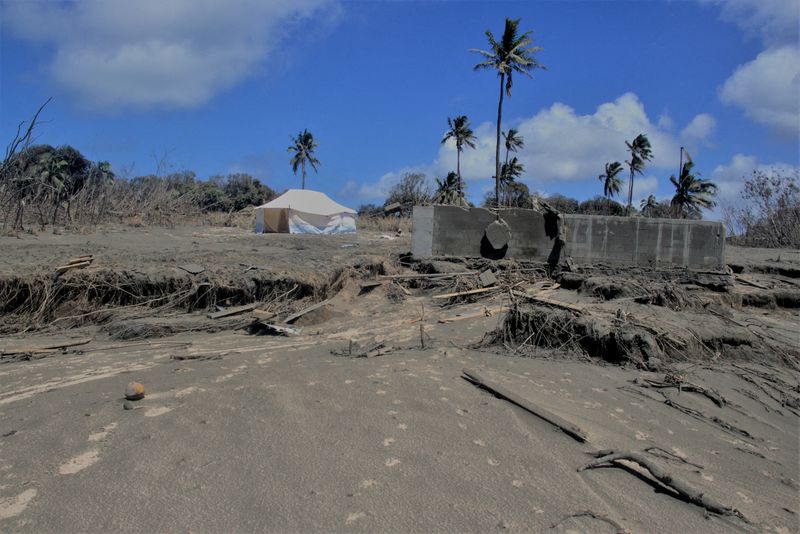(Reuters) – The streets of tsunami-hit Tonga were empty and silent on Thursday on the first full day of a lockdown imposed in the previously coronavirus-free nation after two wharf workers were diagnosed with COVID-19.
“Normally this road would be queueing with vehicles and people, but as you can see all shops are closed, everything is closed – taxi stands, shops, supermarkets, it’s closed,” said local journalist Marian Kupu as she stood at a deserted crossroads in the capital, shuttered buildings behind her.
“It’s a ghost town here in Nuku’alofa.”
There had been fears an influx of international ships and planes delivering badly-needed water, shelter and food after last month’s devastating volcanic eruption had increased the risk of a pandemic outbreak in the isolated Pacific nation. Tonga had previously recorded only one COVID case.
However, the infected waterfront workers were not employed on docks being used by foreign navies to deliver aid, said Curtis Tu’ihalangingie, Tonga’s deputy head of mission in Australia.
The Australian Defence Force’s Chief of Joint Operations, Greg Bilton, said samples from the wharf workers would be sent to Australia for testing to verify the strain’s origin. A further three cases were identified in a family, Tongan radio station BroadcomFM reported on Wednesday.
Tongans had queued outside banks and petrol stations on Wednesday ahead of the lockdown which started at 6 p.m. (0500 GMT).
“Tonga has been hit with two disasters,” said Fe’iloakitau Tevi, chief of staff at Tonga’s foreign affairs ministry.
“One is of course the eruption and the second one is the discovery of the COVID-19 cases. There is a lockdown and I think it’s a good thing. We need to be tracking and doing tracing of those who were in contact with the first two COVID cases.”
(Reporting by Stefica Nicol Bikes; Editing by Karishma Singh and Jane Wardell)

























